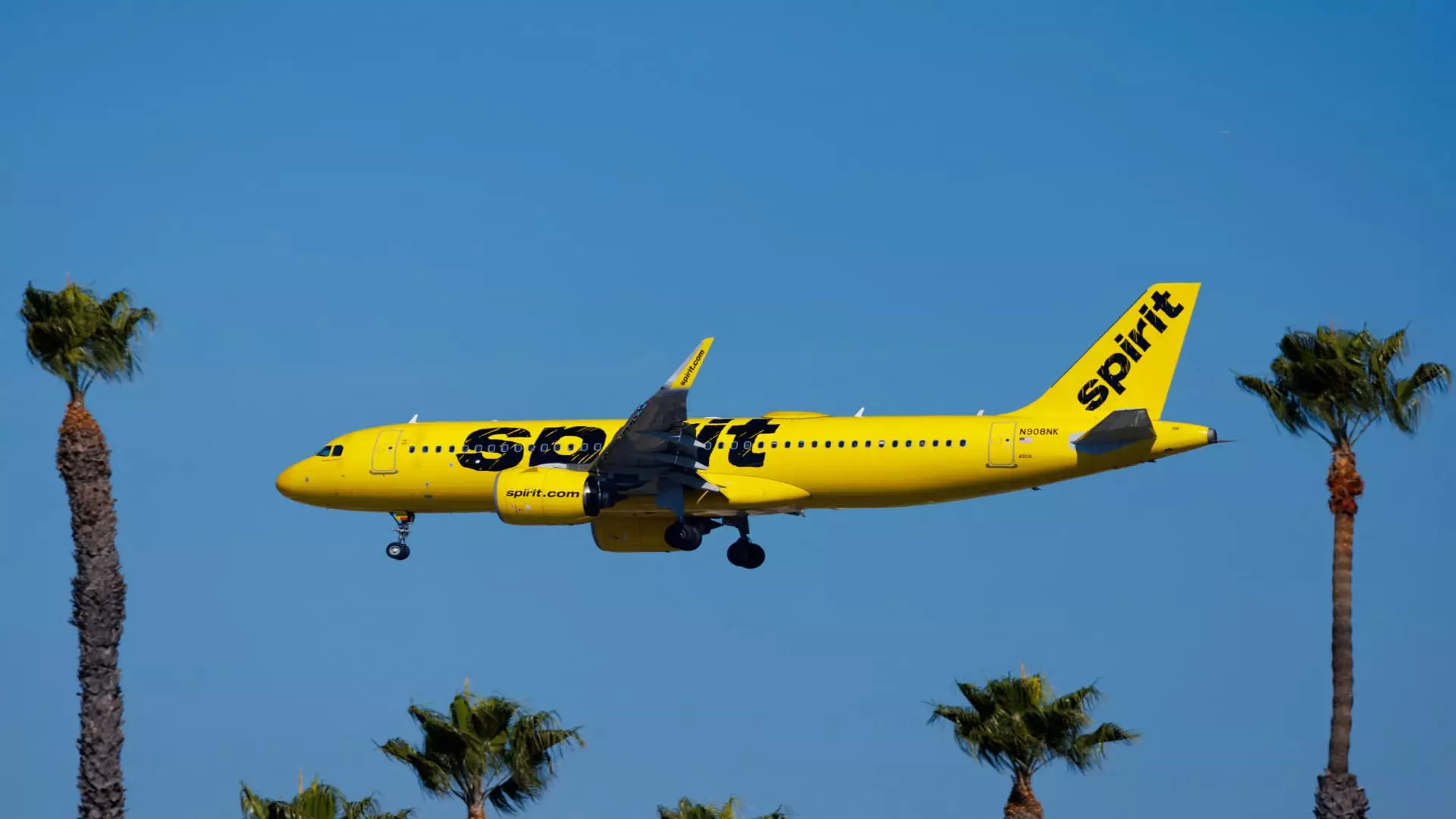In a stark economic landscape, Spirit Airlines finds itself at a perilous crossroads, with shares nosediving to unprecedented lows as whispers of impending Chapter 11 bankruptcy swirl in the air. This precarious situation comes as the company faces an imminent deadline to renegotiate an alarming $1 billion in debt, intertwining its fate with the broader currents of the airline industry. Once a champion of budget travel with its distinct yellow planes and no-frills service, Spirit’s decline has become emblematic of a larger crisis facing many carriers in the post-pandemic world.
Before the upheaval brought on by the COVID-19 pandemic, Spirit Airlines had carved out a niche for itself as a go-to choice for price-sensitive travelers. Offering affordable ticket pricing came with the caveat of additional charges for extras like seat reservations and luggage, a model that earned both loyalty and disdain. However, this very model, once a hallmark of their appeal, has now been effectively appropriated by larger airlines, which adapted their practices to include similar low-cost options, leaving Spirit in a more vulnerable position.
In the wake of the pandemic, Spirit’s operational efficiency and profitability dwindled, reduced to a punchline for comedians who highlight the challenges faced by budget-conscious travelers. The airline’s attempts to maintain its market position were further complicated by a federal judge’s blockage of its proposed acquisition by JetBlue Airways, which Spirit viewed as a critical step towards increasing its competitive edge. The subsequent failure to merge not only stripped Spirit of vital resources but also exacerbated its struggles against larger rivals.
As Spirit Airlines grapples with the fallout from the pandemic, the time has arrived for the airline to confront its mounting financial pressures head-on. With over $1.1 billion linked to loyalty-program-backed debt looming due next September, the immediate need for negotiations has never been more urgent. A bankruptcy filing would mark a seismic shift in the airline’s operations and reputation, as it scrambles to navigate a complex landscape of shifting consumer preferences and elevated operational costs.
The financial aftermath of the previous years has left Spirit Airlines reporting significant losses year over year, with recorded deficits reaching nearly $193 million in the second quarter alone. As a result, cost-cutting initiatives have become paramount; the airline has furloughed pilots, reduced flight schedules, and deferred aircraft orders. Such drastic steps reflect an organization desperately attempting to regain its footing in a competitive and unforgiving market.
Amidst these turbulent waters, CEO Ted Christie remains optimistic and has communicated to staff that Spirit is taking steps to not only compete more effectively but also to repair its balance sheet. “We remain engaged in productive conversations with our bondholders, and we’re focused on securing the best outcome for the business as quickly as possible,” he noted in a recent communication. Yet, the reality remains that without a viable refinancing plan or a substantial shift in operational strategy, bankruptcy could become a distinct possibility.
Investors‘ fears have materialized in the stock market, with shares plummeting over 24% in a single day, landing at a record low of just $1.69. The long-term trajectory appears grim, with shares down nearly 90% throughout the year. In contrast, competitors like Frontier Airlines, which once had plans to merge with Spirit, saw their stock prices soar, underscoring the divergence in fortune between budget carriers.
The current plight of Spirit Airlines raises critical questions about the sustainability of the low-cost airline model in the face of turbulence from economic downturns and altered consumer behaviors. While the airline industry has displayed resilience in the face of challenges, Spirit’s journey may serve as a cautionary tale for others. The path ahead requires not only financial acuity and strategic foresight but also a renewal of consumer trust as Spirit seeks to redefine its position within a transformed travel landscape. The coming weeks will be crucial in determining whether Spirit Airlines can emerge from this crisis or if it faces an uncertain future in bankruptcy court.


Napsat komentář